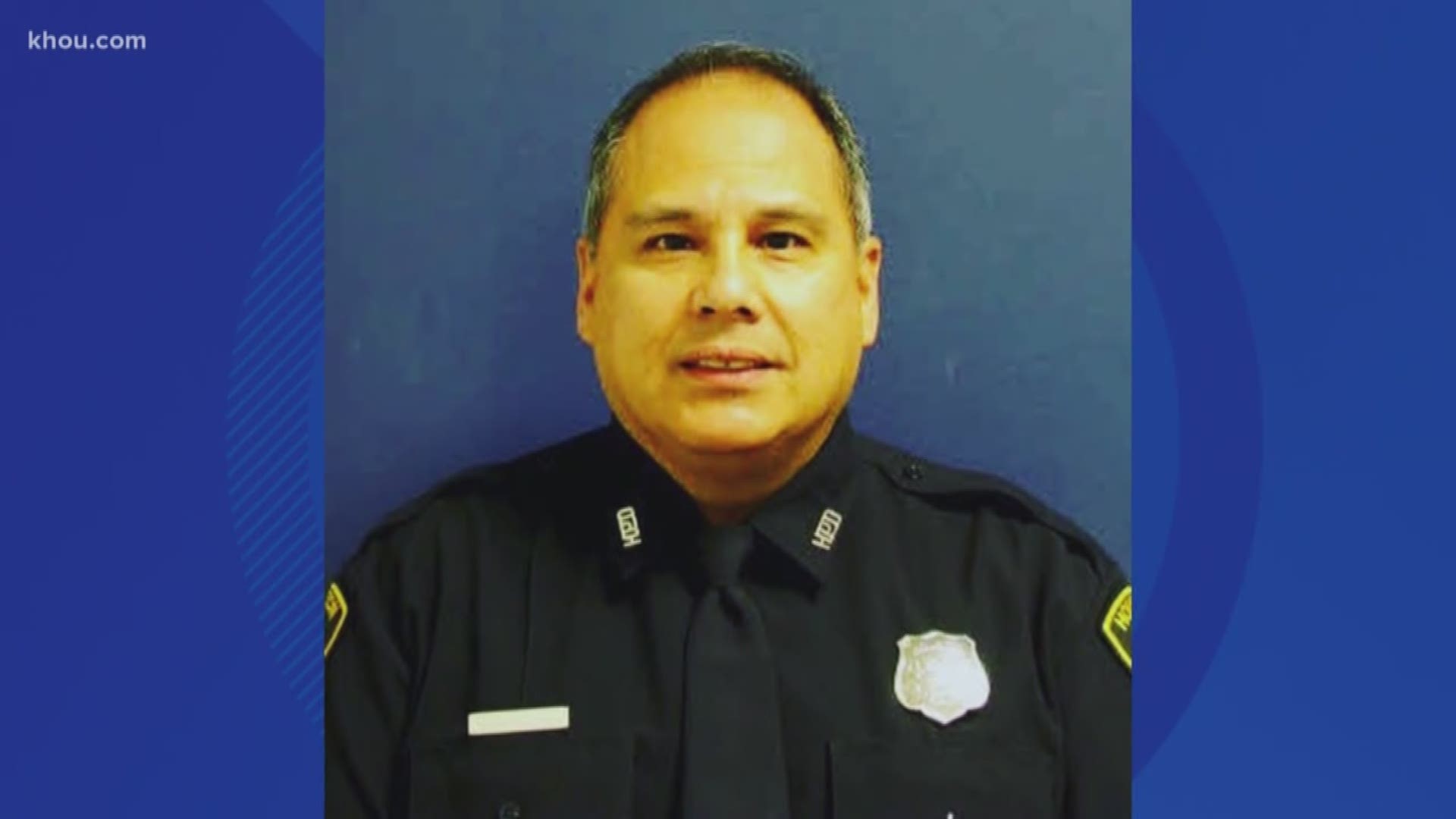HOUSTON — April 18 update: Houston Chief of Police Art Acevedo tweeted that Detective Cervantes "opened his eyes today and was able to follow stimuli and doctor's instructions. We are so hopeful. Thank you all for your prayers and the ones yet to come."
The Houston police officer who’s in intensive care fighting the coronavirus has been identified as a 57-year-old cold case detective.
Ramon “Ray” Cervantes is in critical condition at a Houston hospital after contracting COVID-19.
Houston Chief of Police Art Acevedo said Cervantes has improved in recent days from grave condition to critical, but still has a fight ahead.
The chief named Cervantes Thursday at a news conference at the request of the family.
“We ask the community to continue to pray for him and the family,” Acevedo said.
KHOU 11 has interviewed Detective Ramon Cervantes several times over the years and seen his determination to solve cold cases.
Chief Acevedo said he’s 57 and on a ventilator. He’s been with the department for more than 25 years, but he’s not alone. The Houston Police Department now has 31 officers who have tested positive. The Harris County Sheriff’s Office has 38.
Another brother in blue is also in critical condition, Harris County Deputy Raymond Scholwinski.
“We want him to get back with us where he belongs," said Harris County Sheriff Ed Gonzalez.
Scholwinski is 70. He’s been a deputy since 1994. His sons were part of a parking lot vigil, where they simply asked people to pray.
"Keep my dad, our family and healthcare workers in your thoughts and prayers," said Bryce Scholwinski.
Chief Acevedo said Thursday Cervantes’ wife, Liz, has also tested positive for COVID-19. She’s in isolation at home, but told Chief Acevedo to let people know they are feeling the prayers.
Acevedo said Cervantes is a “great guy, real passionate guy, does phenomenal work at our cold case unit.”
“We really need the prayers,” Acevedo said.
- Coronavirus updates: Houston closing all parks through Easter weekend
- Map: Keeping track of Houston-area coronavirus cases
- 'We were turned down' | 28 coronavirus cases at Missouri City nursing home after staff says county denied requests for widespread testing
- 38 Harris County Sheriff's Office employees test positive for COVID-19; 2 hospitalized
Coronavirus symptoms
The symptoms of coronavirus can be similar to the flu or a bad cold. Symptoms include a fever, cough and shortness of breath, according to the Centers for Disease Control. Some patients also have nausea, headaches and stomach issues.
Most healthy people will have mild symptoms. A study of more than 72,000 patients by the Centers for Disease Control in China showed 80 percent of the cases there were mild.
But infections can cause pneumonia, severe acute respiratory syndrome, kidney failure and even death, according to the World Health Organization. Older people with underlying health conditions are most at risk for becoming seriously ill. However, U.S. experts are seeing a significant number of younger people being hospitalized, including some in ICU.
The CDC believes symptoms may appear anywhere from two to 14 days after being exposed.
Human coronaviruses are usually spread through...
- The air by coughing or sneezing
- Close personal contact, such as touching or shaking hands
- Touching an object or surface with the virus on it, then touching your mouth, nose or eyes before washing your hands.
Help stop the spread of coronavirus
- Stay home when you are sick.
- Eat and sleep separately from your family members
- Use different utensils and dishes
- Cover your cough or sneeze with your arm, not your hand.
- If you use a tissue, throw it in the trash.
- Follow social distancing
Lower your risk
- Wash your hands often with soap and water for at least 20 seconds. If soap and water are not available, use an alcohol-based hand sanitizer.
- Avoid touching your eyes, nose, and mouth with unwashed hands.
- Avoid close contact with people who are sick.
- Clean and disinfect frequently touched objects and surfaces.
- If you are 60 or over and have an underlying health condition such as cardiovascular disease, diabetes or respiratory illnesses like asthma or COPD, the World Health Organization advises you to try to avoid crowds or places where you might interact with people who are sick.
Get complete coverage of the coronavirus by texting 'FACTS' to 713-526-1111.

